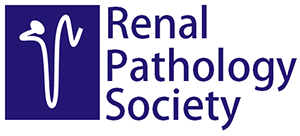Dear RPS members,
 In
2022, the RPS would like to focus on embracing diversity, equity, and
inclusion; and on broadening our international network. One way to
achieve this goal is to celebrate a semi-monthly calendar of observances
and appreciations with 10-question interviews highlighting our diverse pool of
members.
In
2022, the RPS would like to focus on embracing diversity, equity, and
inclusion; and on broadening our international network. One way to
achieve this goal is to celebrate a semi-monthly calendar of observances
and appreciations with 10-question interviews highlighting our diverse pool of
members.
This
month we have two reasons to celebrate!
We retroactively celebrate Women in Medicine Month (September) and
Global Diversity Awareness Month (October) with our longtime RPS member and current
president, Dr. Ingeborg Bajema. Dr.
Bajema was recently appointed a full professorship in nephropathology at
University Medical Center Groningen, the Netherlands. The actual date of the appointment was 1st
October: Diversity Day!
Women
in Medicine Month | American Medical Association (ama-assn.org)
Global
Diversity Awareness Month - The Diversity Movement
Please
find her interview below:
1. What is your name,
where were you born, where do you work?
My
name is Ingeborg Bajema, I was born in Rotterdam, the Netherlands, and as
mentioned in the introduction, I just took up a new position as professor in
nephropathology in Groningen, the Netherlands.
2. What
is your number one topic of interest in nephropathology?
My focus has always been
on ANCA-associated glomerulonephritis and lupus nephritis, but I also have a
broad interest in immune mediated renal diseases in general. Much of my
research is about classifying disease and how findings in the renal biopsy can
contribute to patient management and outcome.
3. What is the
thing you like most about your job?
The thing I like most is
probably the continuous interaction with the nephrologists to discuss biopsy
findings in relation to their clinical questions. I am convinced that patients
will have a huge benefit from a good relationship between clinicians and
pathologists, and finding out what the significance is of tissue changes in
combination with clinical findings is always an exciting exercise.
4. What is the most
challenging aspect of your job?
Time management! I really
love my job, and I get enthusiastic about new projects quite easily – but
finding the time to complete them can be challenging.
5. What did you
want to become when you were a child?
I always wanted to become
a physician – I think it had to do with my grandmother being admitted to
hospital when I was 3 years old. She had a heart-attack and we were very
worried about her. I was fascinated by everything the doctors and nurses were
doing for her – and she lived for another 10 years afterwards and became 89.
6. What would
be your wish for the future - in general or in relation to your work?
The ‘if you could make a
wish question’… In relation to work, I would say my wish would be that we find
the ultimate cure for kidney disease. The burden of end-stage renal failure is
an underestimated issue and we must strive continuously to give our patients a
better perspective.
7. Any special
interests apart from Nephropathology?
Workwise:
No! The kidney is my absolute favorite subject of the pathology field.
8. How do you
think Pathology will look like in 10 years’ time?
We
are about to go through an enormous change because of the developments in
artificial intelligence. There is a rapidly expanding literature showing how
fast this field is moving, and I am sure that new techniques that have
relevance for nephropathology will soon be implemented in our daily work.
Although I think we could benefit from this and that it will make our work
easier if we do not have to count glomeruli anymore or determine percentages of
infiltrates and IFTA, I am also afraid that it may lead to a loss of human
capacities and perhaps a loss of knowledge. Once we get used to rely on the
data that will be provided to us in a split-second, we may invest less and less
in how to identify certain tissue changes ourselves. But time will tell.
9. Who would you consider to be your mentor in renal pathology
or pathology in general?
My mentor in renal pathology is Prof. Jan Bruijn. From the moment
I attended one of his lectures in my second year of medical training, I became
fascinated by renal pathology because of his very enthusiastic teaching, and
working with him over the years – first as a PhD-fellow and later as a colleague
- has always been a great pleasure. He is an excellent pathologist and has a
very good view on how to perform research and how to educate our fellows.
10. What
is your favorite non-work-related activity or way to spend your time?We live near the sea, and
love to take our golden retriever to the beach every weekend. I very much enjoy
to see how the seaside changes through the seasons, and no matter what the
weather is like, the sights are always beautiful. My other passion is gardening
and I get lots of joy out of growing my own tomatoes, corn, beans, and
cucumbers.
Bonus Question: What
have you found most challenging about developing your career as a woman in
medicine?
Probably the most difficult
issue about the position of women in medicine, is that it is considered a
non-existing or otherwise “solved” problem. The topic of equal rights for women has a ring
of something from the past: women suffragettes from the 19th century
and Dutch ‘Dolle Mina’s’ from the 1960s. This surely sounds as if the battle must have
been won by now. But this is overlooking that, in Europe, women are paid on
average 15% less than men for equal job positions. At universities in the Netherlands, only 25%
of professors are women. We now have 54%
female students and 44% female PhD-fellows. Recent figures indicate that we
will reach an equal number of male and female professors in 2040, and this will
be driven mostly by the surplus of women on other levels – which questions
whether equal numbers by 2040 represent real equality. Psychologists point out
that when we make choices for job positions or otherwise, we subconsciously
tend to choose someone similar to ourselves, and this could contribute to lack
of diversity in general. It was therefore that I asked RPS membership at the
beginning of 2022 to look around and choose ‘someone else’ – to become a
member, a colleague or otherwise. It is all about daring to be different!

 In
2022, the RPS would like to focus on embracing diversity, equity, and
inclusion; and on broadening our international network. One way to
achieve this goal is to celebrate a semi-monthly calendar of observances
and appreciations with 10-question interviews highlighting our diverse pool of
members.
In
2022, the RPS would like to focus on embracing diversity, equity, and
inclusion; and on broadening our international network. One way to
achieve this goal is to celebrate a semi-monthly calendar of observances
and appreciations with 10-question interviews highlighting our diverse pool of
members. 


